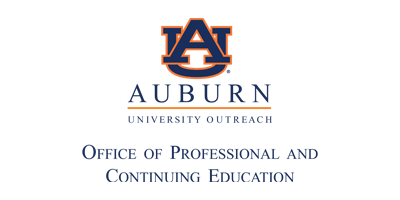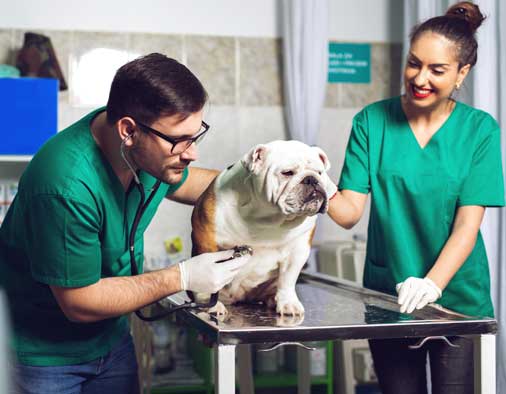Overview
The Veterinary Assistant program prepares learners for a new career in the field of veterinary medicine. Participants will learn about the care of animals as well as how to recognize signs of illness and disease in a variety of animals from common pets to exotic species. This program also covers interpersonal communication, interaction with clients and their animals, as well as how to assist the veterinarian during examinations. Administrative duties, such as fee collection, banking, and accounts payable are also emphasized to provide learners with the skills necessary to maintain an efficient front office. This veterinary assisting course is a vital asset to learners who wish to work in this exciting and rewarding field.
Employment of veterinary assistants and caretakers of laboratory animals is expected to grow 9% from 2014 to 2024, faster than average for this occupation. As more and more Americans are adopting pets, the pet population continues to increase at a steady pace. Additionally, technological and medical advancements veterinary medicine are helping to boost the our level of care for pets at a cost that used to be out of reach, further contributing to the rising demand for veterinary medicine generally, and veterinary assistants in particular. The veterinary assistant can expect to obtain a position mainly in clinics, animal hospitals and research laboratories but grooming facilities, pet day cares and boarding facilities would be in need of individuals with these skills as well.
Program Objectives
After completing this program, learners will be able to:
- Explain how to dissect a medical term in terms of prefix, word root, combining forms, and suffixes
- Define general medical terms and abbreviations used veterinary medicine
- Define veterinary medical terms and abbreviations that apply to each body system including those for anatomy, physiology, diagnostic procedures, and pathological conditions
- Define terms that describe body parts and anatomy specific to various species of animals
- Define common terms that denote sex, age, birthing, grouping, and general descriptions of animals
- Define veterinary medical terms and abbreviations associated with examination, pharmacology, pathology, surgery, dissection, and laboratory procedures
- Define specific veterinary terms and abbreviations used to describe canines, felines, equine, ruminants, swine, birds, and other species
- Explain the foundations of veterinary practice in terms of ethical, legal, safety, practice management, and professional communication
- Explain the concepts associated with veterinary diagnostics
- Explain the concepts associated with veterinary therapeutics
- Explain the concepts associated with animal nursing care and husbandry for different animal species
Certification
There is a National Certification exam available to students who successfully complete this program:
- National Career Certification Board (NCCB) Certified Animal Care Worker (CACW) Exam
Note: Inclusion of National Certification exam vouchers vary from school and payment / finance method. To check if they are included, you may message any of our advisors through any of our available channels here
Financial Aid
Payment Plans
- Zero Interest Monthly Payment Plans
Payment plans are available for any student at zero interest. This option is available for every university partner. Click here for a complete list.
Request Information
See where this program is available
ENROLLMENT OPTIONS
View
Auburn University
Military Grants
See MorePayment Options
See More
Full Payment (includes National Certification)
Full Payment
$3,850.00
0% interest. 12 equal payments
eLearning 12 Payments
$320.83
0% interest. 3 equal payments
eLearning 3 Payments
$1,283.33
0% interest. 6 equal payments
eLearning 6 Payments
$641.67
- All payment plans do not require and have no credit check. Enjoy 0% interest on each payment plan.
All payment plans do not require and have no credit check. Enjoy 0% interest on each payment plan.
